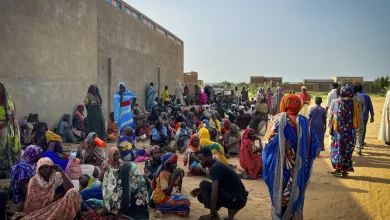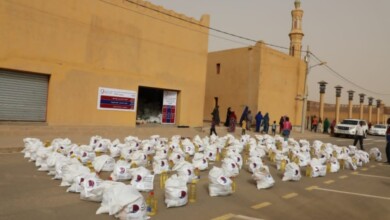The perpetually rising prices prompts citizens to
demonstrate in Sudan
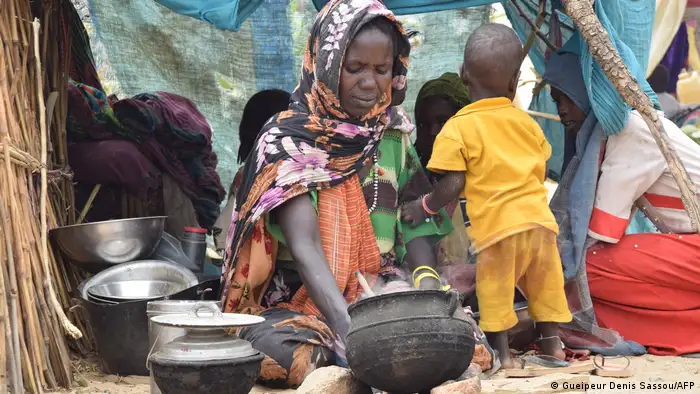
In light of the complex economic and humanitarian conditions due to the ongoing war, the living conditions of the residents of a number of Sudanese cities have worsened significantly as a result of the unprecedented rise in prices for strategic goods, foodstuffs, and fuel.
Foodstuff prices have risen in an unprecedented manner over the past few days, for a gallon of gasoline has reached a price of (15,000 SDG) in the Northern, River Nile and Eastern states of Sudan. As for the other states, it has reached more than (30,000 SDG), where a kilogram of Sugar costs (3,000 SDG), a kilogram of lentils costs (4,000 SDG), and a kilogram of milk costs (15,000 SDG), while a pound “rotl” of milk costs (700 SDG). A loaf of bread is (200 SDG) per piece. In addition, the prices of most imported goods doubled as a result of the rise in the exchange rate of the dollar, which reached (3,000 SDG).
Youth platforms on social media called for demonstrations protesting the high prices in various Sudanese cities.
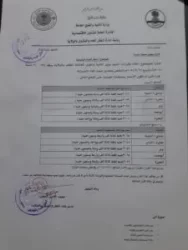
Kassala and the River Nile
The River Nile and Kassala states announced yesterday, Sunday, an increase in the prices of gasoline and diesel, indicated in a letter signed by the Director of the Transport and Petroleum Department, addressed to all station agents, in which the fuel prices were specified in all localities of the River Nile state.
Amna Mohammed, a Sudanese citizen said that she faces a complicated living reality with the repercussions of the war in Sudan that has been raging for more than a year taking its toll. She lost her husband in the war, and began seeking to support her family of four children, as she suffered from the lack of financial resources and high prices, which doubled by 100%.
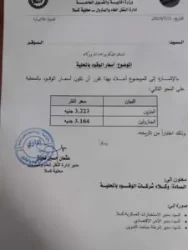
Amna told “Al-Jazeera” that she can only provide the cost of one meal a day for her children with the perpetual rise in the dollar exchange rate in the parallel market, in light of the deterioration of the local currency. Officials’ vehement denial of a looming food crisis and the scarcity of goods only serves to distort the reality.
From the city of El-Obeid, the capital of North Kordofan state, a bakery owner -who preferred to maintain his anonymity- said that the costs of preparing bread have become high, adding that the price of a sack of flour of 25 kilograms reached (60,000 SDG) i.e ($23) with an increase of (20,000 SDG), while the price of cooking oil (an equivalent of 16 kilograms) costs (70,000 SDG) i.e ($27) with an increase of (25,000 SDG) from last June.
The power outage in the city two months ago exacerbated the residents’ suffering, and the cost of (4) gallons of gasoline became (80,000 SDG) i.e ($30.7), and some bakeries went out of business. In addition, some merchants were reluctant to sell their goods due to the daily increase in prices.
Al-Jazeera state
In the city of Al-Manaqil, which is still under the control of Army Forces, eyewitnesses revealed that the flow of food commodities to the city market had stopped and there was a scarcity of fuel. Citizens said that in light of the daily rise in prices, many will end up dying of hunger, especially with a number of them losing their main sources of income, and the prices of goods rising by 50% to 100%.
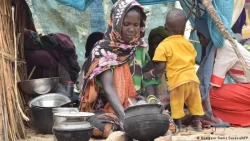
The White Nile state
From the city of Ed Dueim in the White Nile state, Central Sudan, citizen Mohammed Al-Amin said that the prices of flour, rice, lentils, and meat doubled by 100%, the price of a 25-kilogram flour sack became (57,000 SDG) i.e ($21.3) after being (25,000 SDG) i.e ($9.3), and a sack of wheat now costs (95,000 SDG) i.e ($15) when it used to cost (40,000 SDG) i.e ($15).
He added that the increase in sugar prices reached 50%, as the price went from (88,000 SDG) i.e ($33) to (133,000 SDG) i.e ($49.8).
Al-Amin went on to explain that, providing alternatives is very difficult, because these are the basic commodities on which the citizen depends.
The citizens were satisfied with eating one or two meals a day and dispensed with eating meat and bread, in light of the limited income of the city’s citizens, however, the situation may deteriorate further to an utter lack of funds to purchase food supplies.
Exchange Rate Deterioration
The exchange rate of the dollar against the Sudanese pound exceeded (2,500) pounds.
Haitham Fathi, an economic expert, shared that the rise in commodity prices is fundamentally linked to the decline in the value of the Sudanese pound.
Fathi added that the scarcity of food supplies is linked to the provision of foreign exchange for their import and production inputs, in addition to the effects of the war and its expansion, which portends a food shortage.
The absence of goods
The scarcity and lack of availability of food commodities vary across the different states of Sudan. In the city of Suki in Sennar state, the emergency room stated that the city is witnessing a complete lack of sugar, in addition to the absence of some other consumer goods.
In Khartoum state, the spokesman for the Emergency Room, Mohammed Kindsha, told “Al-Jazeera Net” that the prices of basic commodities are witnessing a significant increase, indicating the absence of rice, that about 80% of the capital’s population have come to depend on for their diet.
In light of these miserable living conditions that Sudanese citizens are experiencing, which has caused the death of many due to hunger, youth platforms on social media have called for demonstrations to protest the increasing prices in various Sudanese cities.



